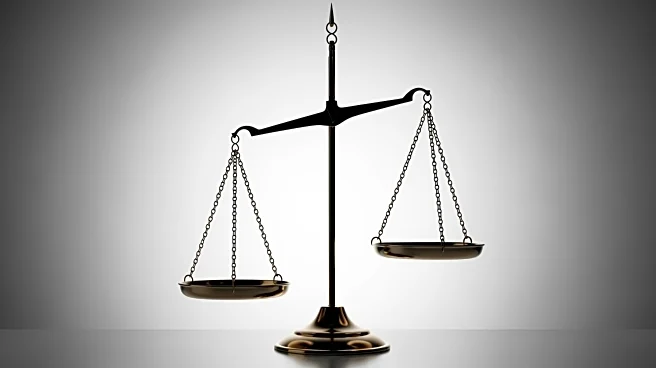What's Happening?
Tony Vitello, former head coach of Tennessee's baseball team, has voiced strong criticism of the Name, Image, and Likeness (NIL) policies in college sports. Vitello, who recently transitioned to managing the San Francisco Giants, expressed his concerns
during an appearance on the podcast 'Bussin’ With The Boys.' He described the current NIL landscape as a 'disaster,' highlighting the lack of consistent rules and the resulting disparities among college programs. Vitello compared the situation to combat sports like UFC and boxing, where the competition is straightforward and the best competitor emerges victorious. He argued that the current NIL framework creates an uneven playing field, particularly disadvantaging smaller programs compared to powerhouses like Tennessee.
Why It's Important?
The introduction of NIL policies has significantly altered the landscape of college sports, allowing athletes to profit from their personal brand. However, Vitello's comments underscore ongoing concerns about the fairness and implementation of these policies. The disparities he mentions could lead to increased inequality among college programs, potentially affecting recruitment and competitive balance. This situation could benefit larger programs with more resources, while smaller schools may struggle to compete. Vitello's critique highlights the need for clearer regulations to ensure a level playing field, which is crucial for maintaining the integrity and competitiveness of college sports.
What's Next?
As NIL policies continue to evolve, there may be calls for more standardized regulations to address the disparities highlighted by Vitello. Stakeholders in college sports, including the NCAA, universities, and athletes, may need to collaborate to develop a more equitable framework. This could involve setting limits on NIL deals or creating guidelines to ensure fair competition. The ongoing debate is likely to influence future policy decisions and could lead to significant changes in how college sports are governed.
Beyond the Headlines
Vitello's comments also touch on broader issues of fairness and equity in sports. The comparison to combat sports suggests a desire for a more straightforward competitive environment, where success is determined by skill rather than financial backing. This perspective raises ethical questions about the commercialization of college athletics and the potential impact on student-athletes' educational experiences. The discussion around NIL policies may also prompt a reevaluation of the role of college sports in higher education and the balance between athletics and academics.
















